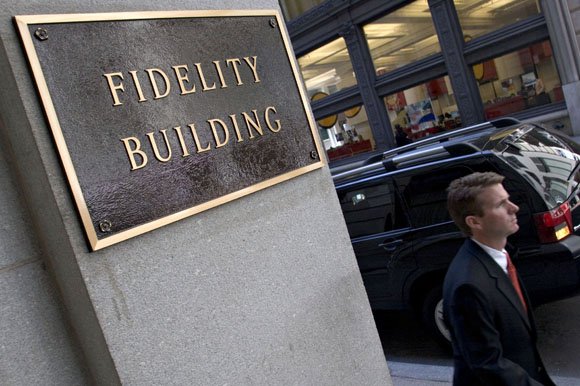Fidelity Investments launched its first ETF in 2003. It has not come out with another exchange traded fund since.
That appears as if it's going to change, however. In December, Fidelity filed for exemptive relief to offer active, fixed-income, long/short and international equity ETFs. “Since our original ETF order was issued in 2003, the SEC has granted many orders permitting other ETFs to have more flexibility … the new order would bring ours in line with that,” said company spokeswoman Sophie Launay.
Fidelity's move makes sense. Since the firm launched its one and only exchange traded fund eight years ago, ETFs have caught on big with investors. Assets in the funds have flat out skyrocketed, from less than $200 billion to more than $1 trillion. And the figure can only go higher.
What's more, exotic ETFs — such as the long/short fund Fidelity is looking to launch — are expected to fuel the future growth of ETFs, according to a study released by McKinsey & Co. in September. Active ETFs in particular have “the ability to change the narrative in traditional asset management and initiate a new growth curve for the industry as a whole,” according to the report.
The report pointed out that the market for plain-vanilla ETFs that track a broad U.S. index has become saturated. There are 44 large-cap-blend ETFs, for example, and more than 85% of the category's assets are in the $94 billion SPDR S&P 500 ETF and the $26 billion iShares S&P 500 Index ETF.
Active and alternative ETFs have yet to catch on with advisers. Such funds represent less than 2% of all ETF assets today. Fidelity's timing, however, means it should be able to launch innovative ETFs before those markets become flooded with products as well. “Might as well get it taken care of now,” said Paul Justice, an ETF analyst at Morningstar Inc. It could take up to two years for the SEC to grant approval for ETFs that include more complex investment vehicles, he said.
While Fidelity missed out on the first wave of ETF mania, rivals like Vanguard Group Inc. and
BlackRock Inc. have taken advantage. Vanguard and
BlackRock had inflows of $37 billion and $20 billion into their ETF lineups, respectively, through the end of November, according to Morningstar. By comparison, Fidelity saw almost $28 billion in net outflows from its mutual funds over the same time period.
One advantage Fidelity does have is its already extensive user base, said Mariana Bush, a CEF/ETF senior analyst at Wells Fargo Advisors. It's similar to Charles Schwab & Co. Inc's entry into the ETF business. Schwab was able to leverage its existing customer base, with the help of commission-free trades, to build its ETF business to more than $5 billion in about two years.
It remains to be seen if Fidelity can match that success. Ms. Launay said the fund firm is "always looking for new ways to provide our clients with the products and services they need and want. The flexibility that this relief will provide should position Fidelity well to meet those needs."
But Ms. Bush cautioned that just because Fidelity has a well-known brand name and a built-in user base, there's no guarantee it will be do well in the ETF universe. “Most investors tend to gravitate towards what's already out there and the plain-vanilla ETFs,” she said. “It appears to be a little bit too late.”
Bedda D'Angelo, president of Fiduciary Solutions, said she's happy with the current ETF options when it comes to broad-based equity funds. “ETFs aren't like Kindles, where you run out shopping for a new one every year,” she said. “If it's not broke, why fix it?”







